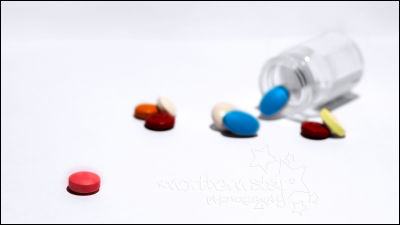Announcement that the risk of death increases with the long-term use of proton pump inhibitor (PPI), a drug that has a high inhibitory effect on gastric acid

Representative gastric acid secretion inhibitor "Proton pump inhibitor(PPI) ", a research result that there is a risk of increasing the mortality rate was announced.
Risk of death among users Proton Pump Inhibitors: a longitudinal observational cohort study of United States veterans | BMJ Open
http://bmjopen.bmj.com/content/7/6/e015735
Proton pump inhibitor (PPI) heartburn drugs linked to increased risk of death - CBS News
http://www.cbsnews.com/news/heartburn-drugs-proton-pump-inhibitors-ppi-risks-prilosec-nexium-prevacid/
Popular heartburn drugs linked to higher death risk | EurekAlert! Science News
https://www.eurekalert.org/pub_releases/2017-07/wuso-phd062917.php
PPI is a drug that acts on the stomach cell proton pump to suppress the secretion of gastric acid and it is said that the inhibition time is longer than the H2 blocker having the same gastric acid secretion suppressive action. In the United States, prescription was necessary to purchase PPI, but as a result of deregulation to be available for sale at the counter of pharmacy without prescription, it is widely sold under the name of Prilosec, Nexium, Protonix, Zegerid etc. Even just Nexium prescribed by prescription, PPI is used in the United States as a very popular drug as it records 15 million times in 2015.
For that PPI, researchers at the University of Washington are examining health risks such as side effects by utilizing veterans' drug prescription records. In the study, the rate of deaths of 73,355 patients who were prescribed H2 blockers with 275,533 patients who were prescribed PPI during the period from October 2006 to September 2008, during the 5 years after taking the dose Follow-up survey was conducted on. As a result, it was found that the risk of death of patients taking PPI compared to patients taking H2 blockers was found to be 25% higher.
Dr. Al-Aly, co-author, said, "The results were very clear and surprising results, especially when analyzing data across all time periods, between PPI use and risk of death There was a consistent relationship in the country. " There was no significant difference in the risk of death in the control group of PPI and H2 blocker under the condition of 30 days after ingestion, but those who had taken medication continuously for 1 year to 2 years, We also found that the risk of death is 50% higher for PPI users than for H2 blockers. It was confirmed that the risk of death increases with taking PPI over a long period of time.
There are other studies that relate PPI to specific diseases, and it is pointed out that there is a risk of causing kidney disease, abdominal infection, heart disease, pneumonia, dementia. Dr. Ali thinks that if the PPI is concerned with all the phenomena being pointed out, it is natural that the risk of death will increase.

However, Dr. Forasade Mae of the University of California, Los Angeles states that this study requires attention in observational studies that show only relevance. It is necessary to ascertain the specific cause of the increased risk of death and to clarify the more detailed risk that PPI gives to health.
Dr. Ali also stated that patients taking PPI immediately from this study should not stop using drugs. Because PPI has a high effect of suppressing stomach acid, it should be recommended to take it in the scene where the need of PPI is high, but it is said that taking it unnecessarily should be avoided. Patients and physicians should understand the merits and demerits and consider whether they should take it or not.
Related Posts:
in Science, Posted by darkhorse_log







